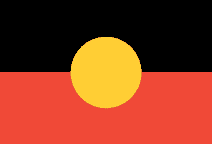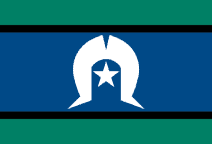“It’s not an easy thing to consistently challenge and push yourself. It makes you vulnerable. But I feel like getting to that space makes you stronger, and you can be proud of taking on a challenge.”
Melissa Tapper
Melissa Tapper is an athlete in rare air. The 2019 Victorian Female Athlete of the Year, Melissa (Milly, to her friends and fans) is a current Commonwealth gold medal holder, and the first and only Australian to compete at both the Paralympic and Olympic Games. The elite table tennis player first performed this incredible double in 2016 in Rio. This year, she did it again in Tokyo.
Last Friday, she reached the teams final, and will leave Japan with a Paralympic silver medal.
While Milly was training and waiting for her Paralympic teammates to arrive, Jobsbank’s Helen Williams got in touch with Milly and arranged for her to join the team for a chat.
Milly, who has a condition called brachial plexus palsy due to nerves between her shoulder and neck being torn during birth, was at the time focused on topping her previous best Paralympic performance – reaching the bronze medal match on her debut at the London Paralympic Games.
At that time, it was Australia’s best performance in table tennis at a Paralympic Games in 28 years.
But as Milly told us, the loss created an emotion she never wanted to feel again.
For those of us working through the range of professional and personal challenges thrown up by the past two years, Milly was happy to talk about that turning point, and how she used it to move to the next level of her career.
“I lost the bronze medal match after being in the lead,” she explains.
“It’s the point you realise you have two options: work through it and find a solution, or feel sorry for yourself and let it consume you to the point you’ll do anything to avoid difficult circumstances.”
Needless to say, Milly chose the first option. “It’s not an easy thing to consistently challenge and push yourself,” she says.
“It makes you vulnerable, but I feel like getting to that space makes you stronger. You can be proud of taking on a challenge. So every day since that point, I choose to take on the challenge of bettering myself on and off the court.”
When we spoke, Milly was in a completely unique situation, competing in two back-to-back games at the highest possible level just weeks apart.
We asked if she had any tips for how to sustain peak performance, but also how to make sure you give yourself a break, regroup and recharge so you can come back at your best as quickly as possible.
“Understanding yourself and what you are capable of takes time, and trial and error,” she says, before explaining her approach to success is about the “1 per-centers.”
For Milly, the key is breaking any task into small, easy to tackle parts. “I identify the areas I need to improve on, then attack them one at a time until I’m comfortable to add in another. Now, I do them all on a daily basis – but it takes time to build a habit and routine.”
As someone with a lot of experience turning adversity into success we were keen to hear Milly’s advice on how to keep bouncing back, especially when you feel you have nothing left in the tank – an increasingly relatable feeling at this point in 2021.
“Firstly we need to know our Why” Milly explains. “Why do you want something? Why is it important to you? When you have your why – or purpose – you have a goal. Then when you have your goal, you have an inner drive to try again.
“It’s important that we learn from mistakes but it’s also really important to learn from when things go well also. Then consistency and discipline is key.”
Before heading back to her training schedule, Milly left us with some final thoughts on how to find focus when you’re out of your comfort zone – as she has been while in and out of hotel quarantine and training during lockdown, and as we all have been due to the way the COVID-19 pandemic has impacted on us all.
Our greatest growth is done when we are uncomfortable,” Milly says. “I know for myself when I return home and go through quarantine I’m going to set myself a goal for the 14 days, and hold myself accountable to it – such as signing up for STEPtember. Similar things can be done through lockdowns – just set a goal of something you want to achieve within a set period of time. It can be physical or not, just something that excites or interests you.”
Thanks again for taking the time, Milly, and congratulations on your silver medal and an extraordinary Olympic campaign.
Whether you’re looking to start your social procurement journey, or take the next step for your organisation’s diversity and inclusion goals, get in touch with the Jobsbank team.



